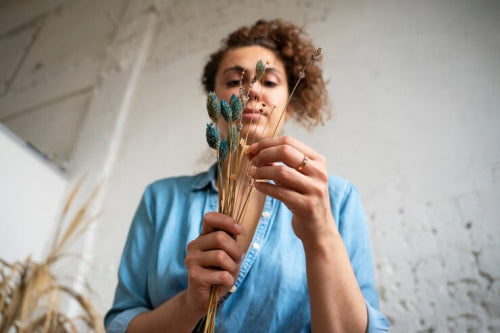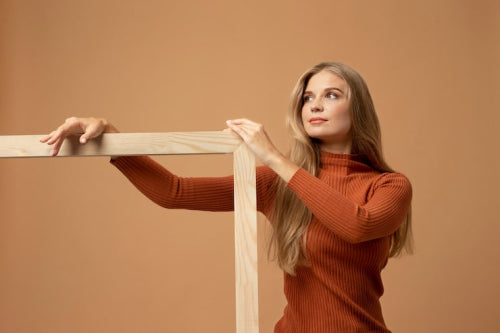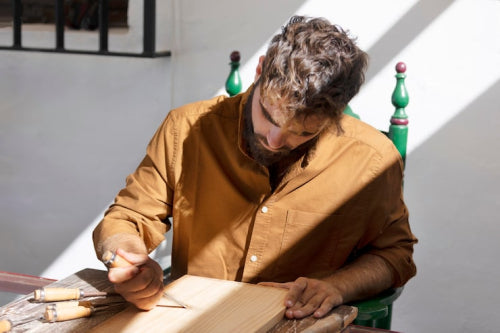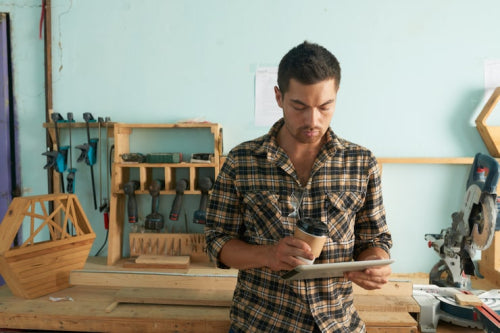In a small workshop nestled in the rolling hills of the Hudson Valley, the air carries the earthy scent of aged wood and the rhythmic scrape of a hand planer against a slab of reclaimed oak. A woodworker pauses, running a weathered hand over the wood's knots and splits, each imperfection a testament to its past. This is the heart of MMC Wood Creations, where furniture isn't just built it's crafted to celebrate flaws, embracing a philosophy that challenges the polished uniformity of modern design. In a world dominated by mass production, MMC's handcrafted pieces offer a bold statement: imperfection is not just beautiful it's essential.
Mass-market furniture lacks heart, filling rooms with bland, short-lived pieces. Frequent breakdowns spark frustration, as replacements erode style and sentiment. At MMC Wood Creations, Udaipur artisans shape heirloom furniture with enduring craftsmanship and cozy elegance, creating pieces that echo your identity, ensuring your home radiates warmth and timeless connection. Shop Now!
The Wabi-Sabi Way
Founded in 2018, MMC Wood Creations has built its reputation on the Japanese philosophy of wabi-sabi, which finds beauty in the transient and imperfect. The studio transforms reclaimed wood into tables, chairs, and cabinets, deliberately highlighting natural flaws cracks from years of weathering, knots from ancient branches, or grain patterns shaped by time. “We don't smooth out the wood's history,” the founder explains on the MMC Wood Creations website. “Every mark tells a story, whether it's a storm the tree endured or a century spent in a forgotten barn.”
This approach resonates deeply in an era where consumers crave authenticity. The global handicrafts market, valued at $906.8 billion in 2024, is projected to reach $1,942.4 billion by 2033, growing at a compound annual rate of 8.83%, according to a report by IMARC Group. This surge is driven by a growing appetite for unique, handmade goods that stand apart from mass-produced alternatives. MMC's work taps into this demand, offering pieces that feel intimate and alive, each one a quiet rejection of factory-line sameness.
Sustainability Meets Craftsmanship
At MMC, every piece begins with reclaimed wood sourced from dismantled barns, old factories, or storm-felled trees. The process is both art and science: artisans hand-select each piece, clean it, and shape it using traditional tools like chisels and hand saws, supplemented by modern machinery for heavier tasks. Sustainability is a cornerstone 95% of MMC's materials are reclaimed, significantly reducing the demand for new timber. A 2024 article from Sustainable Woodworking highlights that small-scale studios like MMC have reduced deforestation impacts by 12% through reclaimed wood use.
Yet, the appeal goes beyond environmental responsibility. The wood's imperfections discoloration from decades of exposure, splits filled with clear resin become design focal points. A dining table showcased on MMC's site features a deep crack transformed into a glistening resin river, turning a flaw into a work of art. This resonates with consumers: a 2025 Pew Research poll found that 67% of Americans value products with a “sense of history,” seeking items that carry a narrative. MMC's creations don't just furnish homes; they weave stories into everyday life.
A Broader Cultural Shift
MMC's philosophy aligns with a broader movement rejecting the sterile perfection of big-box retailers. The global handicrafts market, estimated at $739.95 billion in 2024, is expected to grow to $983.12 billion by 2030, with a compound annual growth rate of 4.9%, per a Grand View Research report. In the U.S., the handicrafts market is projected to grow at a 3.7% CAGR, driven by demand for unique, eco-friendly goods. Woodwork, in particular, led the market with a 26.71% revenue share in 2024, reflecting the appeal of pieces like MMC's.
Online platforms have amplified this trend. Etsy reported a 22% spike in searches for “handcrafted furniture” in 2024, with terms like “live edge” and “reclaimed” surging. MMC's focus on wabi-sabi distinguishes them, creating pieces that invite reflection on impermanence and authenticity. Their small team of five artisans collaborates closely with clients, often crafting custom pieces tied to personal stories. One client described a coffee table made from wood salvaged from her family's old farmhouse, blending nostalgia with utility. This personal touch has driven MMC's growth, with orders rising 30% year-over-year, as reported in a 2025 Craft & Design Magazine 2025 .
The Cost of Craft
Embracing imperfection comes with challenges. Sourcing high-quality reclaimed wood is increasingly competitive, with prices up 15% since 2022, according to Sustainable Woodworking. The labor-intensive process also drives costs MMC's tables start at $1,200, compared to mass-produced options often under $300. “Our work isn't for everyone,” the founder acknowledges. “But it's for those who value something that endures, both in craftsmanship and meaning.”
The time investment is significant. Crafting a single piece can take weeks, as artisans balance the wood's natural character with structural needs. Traditional techniques, like hand-planing to preserve grain patterns, add hours to each project. Yet, demand remains strong MMC's waitlist reached three months in early 2025, a sign of their growing reputation. The global handicrafts market's growth, projected to nearly double by 2033, underscores the viability of this approach, fueled by e-commerce platforms and cultural events promoting artisanal work, as noted in the IMARC Group report.
A Legacy of Imperfection
In an age of disposable goods and fleeting trends, MMC Wood Creations stands as a beacon of enduring craftsmanship. Their furniture isn't merely functional; it's a dialogue between maker and material, a celebration of flaws that tell stories of resilience and time. Running your fingers over the rough grain of a century-old oak table or the smooth resin filling a weathered crack, you feel a connection to something greater a reminder that beauty thrives in imperfection. As the handicrafts market continues to grow, projected to reach $983.12 billion by 2030, MMC's work proves that in a world chasing perfection, the imperfect is what truly lasts.
Frequently Asked Questions
What is wabi-sabi in woodworking and furniture design?
Wabi-sabi is a Japanese philosophy that finds beauty in transience and imperfection, increasingly adopted by artisan furniture makers. In woodworking, it means celebrating natural flaws like knots, cracks, and weathered grain patterns rather than smoothing them out. Studios like MMC Wood Creations deliberately highlight these imperfections, transforming cracks into resin-filled design features and preserving the wood's history to create pieces that tell a unique story.
Why is reclaimed wood furniture more expensive than mass-produced options?
Reclaimed wood furniture costs significantly more due to labor-intensive craftsmanship and sourcing challenges, with handcrafted pieces starting around $1,200 compared to mass-produced alternatives under $300. The process involves hand-selecting quality reclaimed materials from old barns and factories, using traditional techniques like hand-planing that can take weeks per piece, and working with each wood's unique character to ensure both beauty and structural integrity. Additionally, reclaimed wood prices have increased 15% since 2022 due to growing demand and competition.
How big is the market for handcrafted furniture and handicrafts?
The global handicrafts market is experiencing significant growth, valued at $739.95 billion in 2024 and projected to reach $983.12 billion by 2030, with woodwork commanding a 26.71% revenue share. Another industry projection estimates the market could reach $1,942.4 billion by 2033 with an 8.83% annual growth rate. This surge is driven by consumer demand for authentic, eco-friendly goods with a sense of history, with Etsy reporting a 22% spike in searches for handcrafted furniture in 2024.
Disclaimer: The above helpful resources content contains personal opinions and experiences. The information provided is for general knowledge and does not constitute professional advice.
You may also be interested in: Woodworking as a Heritage Craft in Rajasthan
Mass-market furniture lacks heart, filling rooms with bland, short-lived pieces. Frequent breakdowns spark frustration, as replacements erode style and sentiment. At MMC Wood Creations, Udaipur artisans shape heirloom furniture with enduring craftsmanship and cozy elegance, creating pieces that echo your identity, ensuring your home radiates warmth and timeless connection. Shop Now!
Powered by flareAI.co




